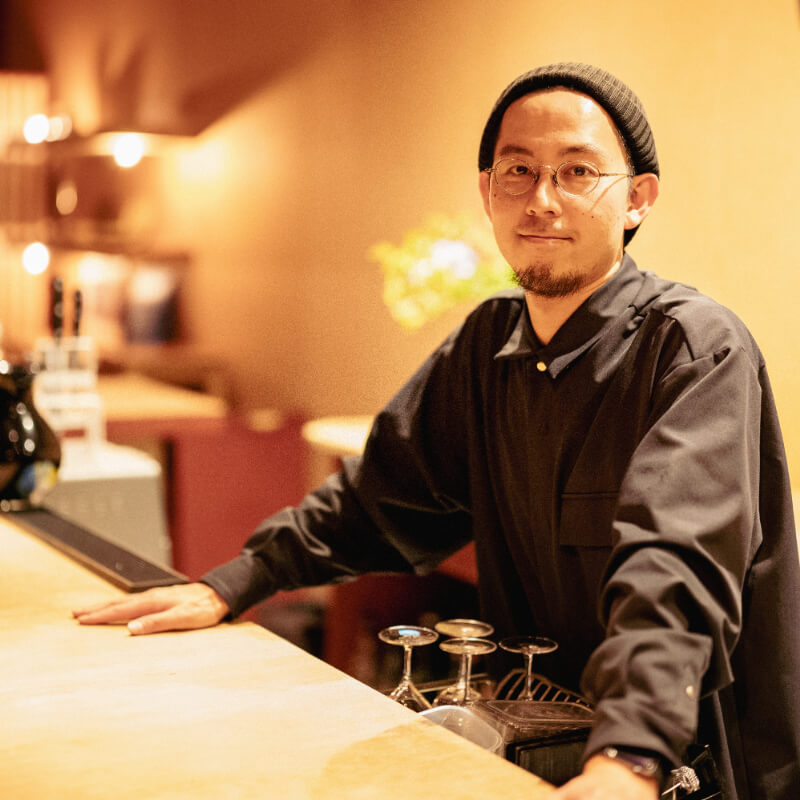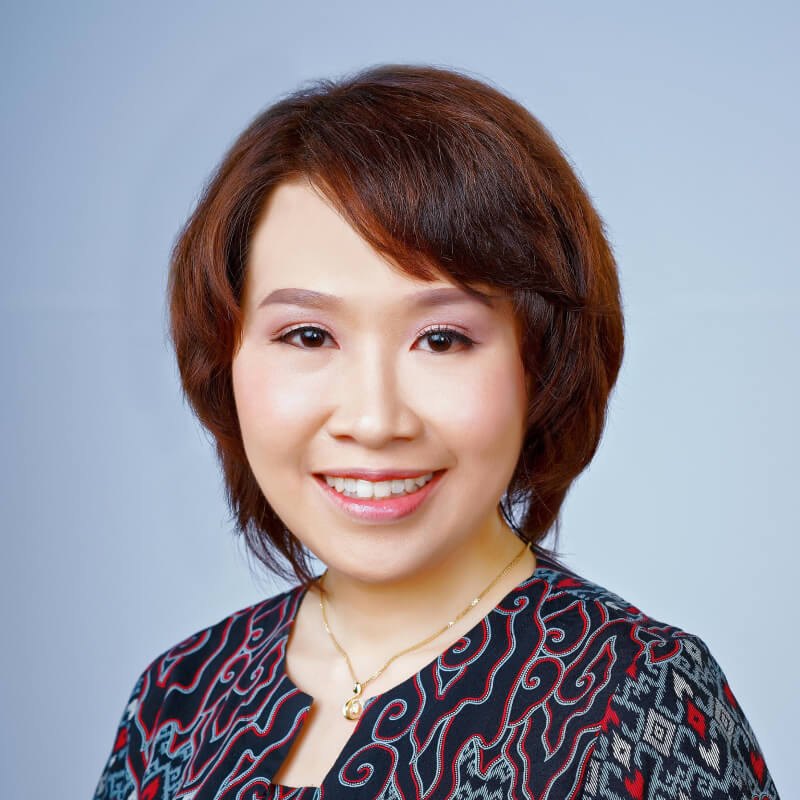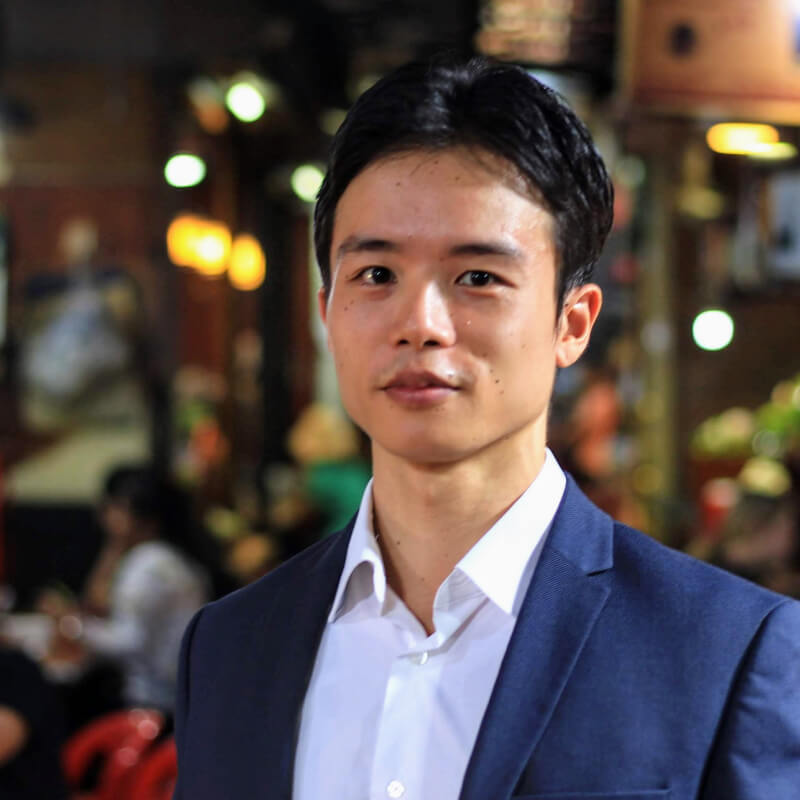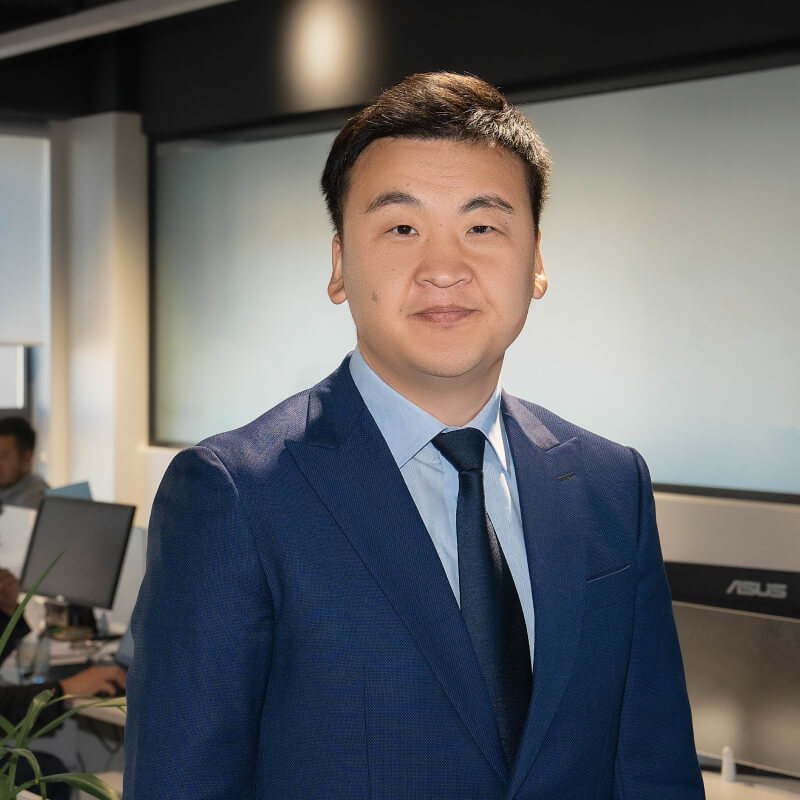
Inspired by Sony,
Fueled by Ambition:
Empowering SMEs in Mongolia and Beyond
Ankhbold, BAYANMUNKH
*Since 2009, the name has been updated to the College of International Management.
Introduction
I was born and raised in Ulaanbaatar, Mongolia, in 1980. Around the time I was ten, the Soviet Union collapsed, and Mongolia transitioned from socialism to capitalism. The economy was in turmoil, and there was nothing left in the stores, leading to rationing. My parents both worked, and I had a younger brother and sister. As the eldest, it was my duty to stand in long lines among adults with ration coupons. There was a tragic incident where a friend, who I often played with, suffocated in the crowd.
The country, which had once taken care of everything in the economy and society, saw its factories go bankrupt. People began to say that doing business was necessary, as salaries were insufficient. My parents started trading various goods with China and discussed business ideas over dinner. I naturally became interested in business.
An event in Mr. Ankhbold's middle school years sparked his strong interest in Japan.
One day, a limited number of Sony color TVs from Japan arrived in Mongolia, and my mother won the right to buy one. The TV was expensive, requiring the use of all our family's savings. My parents decided to buy it. It was the latest Sony Trinitron color TV with a remote control. The quality was incomparable to the black-and-white TVs we had before. It felt like it came from space (laughs).
In high school, Ankhbold found a book by Sony's founder, Akio Morita, translated into Mongolian.
Sony started as a small workshop with a few dozen people in a town. It began after Japan's defeat in World War II, from the ashes, wondering how to improve the country. Sony's initial slogan was 'Reviving Japan,' not about the company's growth but Japan's revival. That resonated with me, considering Mongolia's situation. It solidified my desire to study in Japan and start a business one day to improve my country.
APU: Bachelor's and Master's Studies, and Employment at a Japanese Consulting Firm
Mr. Ankhbold heard about APU's opening through acquaintances while researching about studying in Japan.
The concept of gathering students from various countries appealed to me, fitting the global era narrative. I applied and was accepted. Meeting people from different countries and with different values was a novel experience for me, a first-time overseas traveler. My peers and I, being the first batch, were few in number and close-knit. We worked hard at part-time jobs too, as many of us were from developing countries. Looking back, it was a wonderful youth.
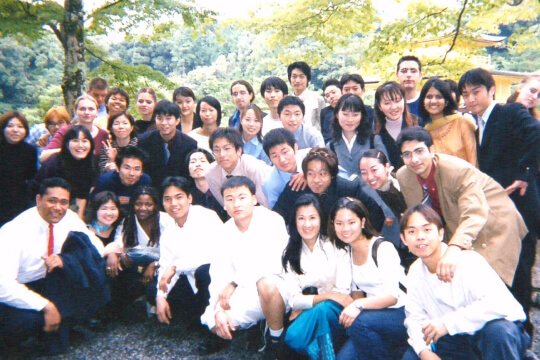
He deepened his understanding of business, an interest he held even before joining APU.
The classes I joined were related to management and marketing as I was in the College of Asia Pacific Management. I also attended APU's graduate school, where I specialized in strategy. APU's professors came from various countries, which allowed me to learn from different perspectives. Since they had solid business experience, their teachings were not just theoretical but also practical and very educational.
Additionally, the comprehensive support system for students, including the Student Office and Career Office, was excellent. At that time, I was undecided about whether to pursue graduate studies or searching for a job. The Career Office advised me to seriously engage in job hunting first and then decide later. This led me to explore various industries, including retail, food and beverage, trading companies, banks, and manufacturers. Even in industries I had not considered for employment, I visited them for learning purposes. Eventually, I chose to attend graduate school. But that job-hunting experience turned out to be extremely beneficial.
During my job search in graduate school, APU was not yet well-known, and as a native of the small country of Mongolia, it was challenging for me to receive job offers. However, I remember being encouraged by my seminar professor who said, 'Global competence will become a must in the future. That's when talents like you, with international backgrounds, will be in high demand.'
After graduating from graduate school in 2006, Mr. Ankhbold joined a Japanese consulting firm, ABeam Consulting Ltd. He aimed to gain experience in various industries and fields, as he intended to return to Mongolia and establish a company. After joining, he was assigned to the Supply Chain Division.
At Abeam, I gained extensive experience in projects improving the entire supply chain system and processes of major Japanese high-tech companies. For instance, we looked at how to accurately forecast demand and how to incorporate those forecasts into production plans for effective implementation. These experiences are still very valuable to me today.

Returning to Mongolia and Founding a Financial Company
Afterward, in 2012, he returned to Mongolia and served as Vice President in charge of organizational transformation at a subsidiary of Mongolia's largest Shonkhor Group. In 2016, he co-founded InvesCore Financial Group (hereafter InvesCore) with four partners.
InvesCore provides financial services like securities, leasing, non-banking, investment funds, and real estate investment using advanced technologies like AI to make them accessible and user-friendly for customers. The reason we decided to venture into the financial business was that money is vital in any business. At that time, while the banking sector in Mongolia was developed, other areas like the securities market were not. We aimed to transform the non-banking financial sector and facilitate the flow of money to drive the economy.
Particularly, we focus on providing financial services to small and medium enterprises (SMEs) that are either unable to use banks or are not yet ready to do so. Most of our current customers are such SMEs.
The financial services offered by InvesCore range from car loans to loans for SMEs to property development. In property development, InvesCore is also directly committed to being part of its own business. It has adopted a concept of maintaining and managing real estate from a long-term perspective, something that has never been done in Mongolia before, and offers a new way of creating value through real estate.
The recent economic development in Mongolia is underpinned by the mining and resource development of copper, coal, and the rare mineral molybdenum. However, Mr. Ankhbold and his team are focused on the development of SMEs. The growth of these enterprises will make Mongolian society more convenient and comfortable.
In addition to financial services, what InvesCore started doing first in the industry was to offer free consultations on business plans, procurement, employment contracts, and general business matters. Although it is a lot of work, we have developed a user-friendly database and automated processes as much as possible using technology, allowing us to spend more time talking and advising our clients.
InvesCore announced a partnership project to support SMEs, having raised over $25 million, including $5 million from the European Bank for Reconstruction and Development (EBRD) and $10 million from the Asian Development Bank (ADB) in 2023. This signifies that the system and staff InvesCore has built to support businesses have been recognized and relied upon by both European and Asian Development Banks.
Expanding from Mongolia to Central Asia
Currently, with about 550 employees, the company is not only operating in Mongolia but also planning to start full-scale operations in Kyrgyzstan, Kazakhstan, and Uzbekistan from 2024. The socioeconomic conditions in these Central Asian countries are similar to Mongolia, allowing InvesCore to apply the business models developed in Mongolia.
Mongolia is a small market with a population of 3.5 million people. We have been saying from the beginning that we would go abroad. However, at that time, the reaction from others was mostly, 'Can a Mongolian company do such a thing?' But now that we are actually going abroad with our financial business and starting to see results, the way others view us is changing.
The most pleasing thing recently was hearing that, in a pitch contest for startups by young Mongolians, 6 out of 10 companies said, 'We are going abroad, aiming for Central Asia first.' I want young people to keep going out, and we want to do it together with them. Recently, major Mongolian companies have also started to say, 'Let's do it together.' I feel that the consciousness of some of the Mongolian business people is changing.
It seems that the thoughts of Mr. Bayanmunh Ankhbold, who was inspired by the writings of Sony founder Akio Morita (and Sony's television) and started his own business with a desire to 'improve society,' are beginning to spread among the people of Mongolia. And, this passion is spreading beyond the boundaries of the country.

